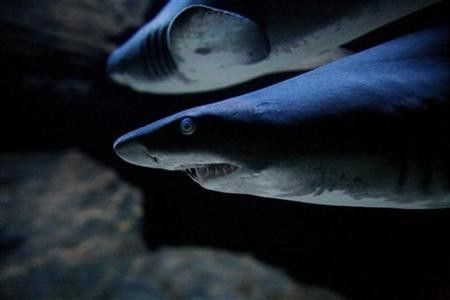World's First IVF Shark Born in Australia's Melbourne Aquarium

The world's first IVF shark was successfully hatched in Australia's Melbourne Aquarium. Australian veterinary staff and aquarists have made history with the birth of the first shark born via artificial insemination. Scientists hope that the IVF success can be used to help breed endangered species.
According to Sea Life Melbourne Aquarium, the first IVF shark was born on March 3. The artificial insemination process of breeding a brown branded bamboo shark began in September 2013 when aquarists collected samples of semen from a male shark in Mooloolaba, northeast Australia.
The samples were flown into Melbourne and inseminated into the female shark on the same day. The shark pup is the first shark in the world to come from a live semen sample transported from one place to another.
Rob Jones, a veterinarian in Melbourne Aquarium said the shark pup is expected to grow from 16 centimetres to an adult size of 1.2 to 1.5 metres. It was considered a milestone in hatching a shark, using assisted reproduction technology. Mr Jones said the birth of the IVF shark was a big leap.
The hatching of the shark is part of a nine-year project that will help scientists understand the sharks' reproductive behaviour. Sharks may be common in Australia, but little is understood about them.
The Melbourne aquarium team hopes to expand their research and aid in plans to preserve threatened animals especially the critically endangered grey nurse shark.
The researchers seek to use their IVF success as a basis for breeding sharks the endangered sharks in captivity and boost the numbers of other species running low in the wild. According to reports, grey nurse sharks are critically low in number with estimates of 1,500 found on the east coast of Australia.
Western Australia's shark cull policy continues to be condemned by conservationists and the general public for catching and killing sharks caught in baited drumlines. Despite the state's assurance that only sharks meeting the minimum size requirement for the cull will be harmed, some sharks and dolphins smaller than 3 metres get caught in the drumlines.
Sharks are common in Australian waters and are known to wander in popular beaches like Bondi Beach. Authorities have installed nets off the beaches to protect swimmers, but the nets have become controversial in New South Wales for catching two sea turtles and two humpback whales.






